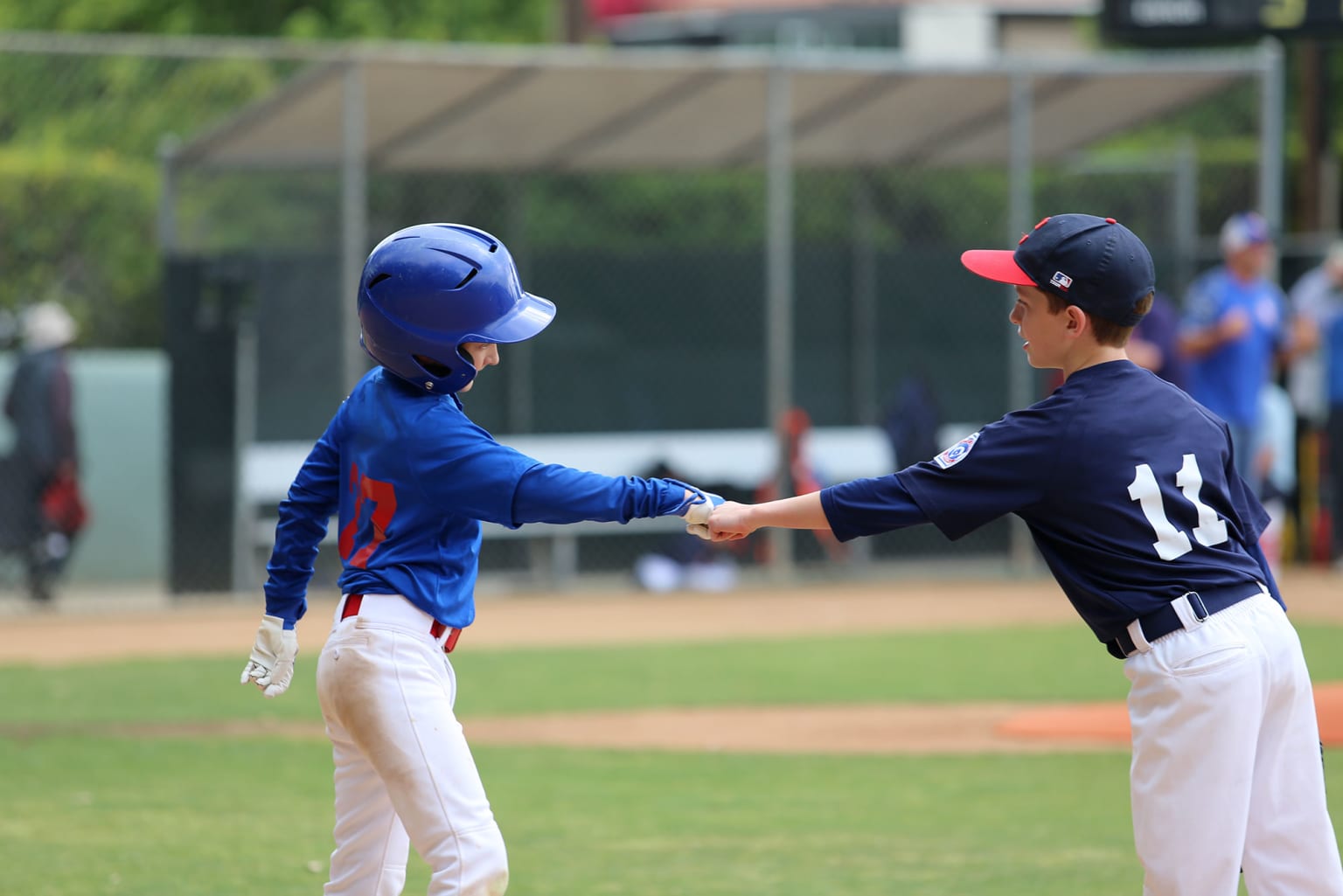Three Tips for Instilling Sportsmanship

Good sportsmanship is often associated with taking a loss gracefully. That’s certainly true, but winning gracefully is just as important, according to Dr. Wendy Middlemiss, Ph. D., an associate professor of educational psychology at the University of North Texas.
Middlemiss has been a certified family learning educator for more than 20 years. She has guest edited several publications, including Family Relations journal and “The Science of Mother-Infant Sleep.”
The exposure of children to negative behavior by professional athletes creates a challenge for parents and coaches in stressing the difference between being passionate about a sport and demonstrating extreme negative or hurtful attitudes. Fair or not, kids idolize these athletes as role models, and often emulate what they do, good or bad.
“Part of being passionate about your sport is that you appreciate the challenges and difficulty in playing your sport well, and how much practice it takes,” Middlemiss said.
How can a child learn to embrace proper characteristics of sportsmanship? Middlemiss has three tips to develop these attitudes, whether you’re on the winning or losing side:
Celebrate the activity or game, rather than the outcome.
Middlemiss recalls one of her son’s middle school soccer games, when a referee made two wrong calls that resulted in goals being taken away. During halftime, the coach took his players aside, explaining the importance of playing with respect, honor and skill, regardless of the outcome.
“They played that way throughout the whole second half,” Middlemiss recalled. “They lost, but if you had just walked onto the field, you would have thought my son’s team was the one who won. They were jumping up and down, they were so proud of themselves.”
Be realistic about feelings.
Winning is great fun; losing isn’t. It’s ok to be excited after a win or frustrated after a loss. Middlemiss advises winners to recognize how hard the other team played, and think about how it feels for them to lose. If your team lost, focus on turning that disappointment into what you can do better next time.
Point out examples of good and bad sportsmanship, and discuss it.
With all the television coverage given to sports, cameras constantly focus on the outward emotions of both the winning and losing teams. Middlemiss encourages parents to talk with their kids if they witness a positive or negative behavior, whether it’s shaking hands with the other team after a game, or cursing and throwing a tantrum after a bitter defeat. Help them decide which behaviors are acceptable, and which ones are not, and how they can learn from each.
Enjoying the overall experience, staying in touch with your child’s feelings, and discussing the difference between positive and negative behavior may not completely eliminate unhealthy attitudes, but should go a long way toward developing a young athlete’s character, regardless of how a game or activity turns out.
From GameChanger and Stephen Kerr.